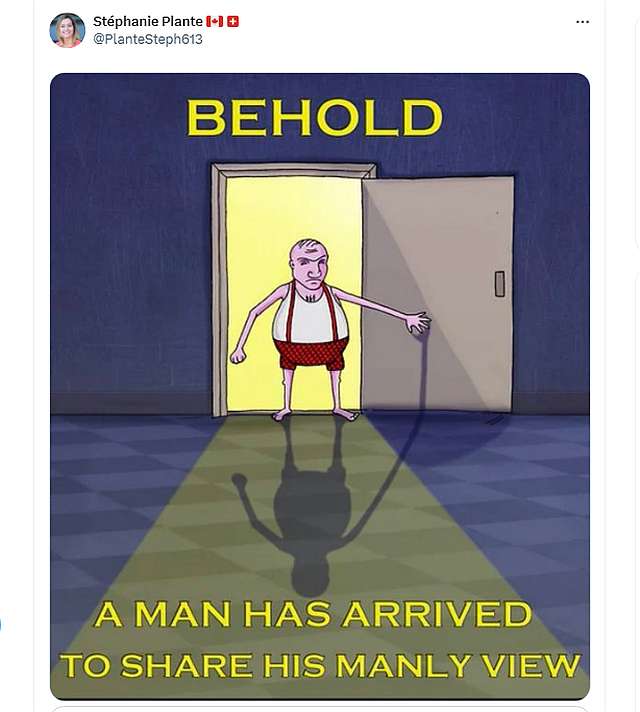Case Against Plante Should Be Rejected: GRAY

Publish it, unless you have a very good and specific reason not to.
Over 48 years of journalism, sometimes under gruesome and quickly approaching deadlines, as a reporter, columnist and editor, I’ve tried to stick to that mantra. Occasionally in journalism, you have to make critical ethical decisions in a matter of minutes … day after day. You hope you get it right.
That philosophy above helps you out of a lot of difficult situations. I shy to the side of publish a controversial or vital story. When in doubt, without a good and specific reason to do otherwise, publish it.
Freedom of expression is critically important to an open and democratic society. Just take dictators. When they overthrow a government, some of the first people they come looking for are the journalists. These bullies want to control the truth. You can’t revolt against something you don’t know or has been spun beyond recognition due to a lack of respectable journalists.
I had to apply the good-and-specific principle in a media-law course I created and taught for five years at Algonquin College. I spent a lot of time considering the consequences of it.
Nevertheless, it’s easy not to publish. No muss. No fuss. The difficult thing is getting that important information out there without being sued or finding yourself in contempt of court. It’s a tricky business. The worst outcome? Your story in question is wrong. Break out the lawyers. Feel the wrath of an aggrieved public and your saintly colleagues. Ouch.
All these self-aggrandizing words above are for a point.
When it comes to freedom of expression, I have considerable expertise. It is, to me, very important. I’ve built a life around it for almost half a century.
So I might, just might, understand freedom of expression. Maybe, perish the thought, even a bit more than the city’s integrity commissioner Karen Shepherd. Perhaps a bit more knowledgeable in this small world than the unnamed “well-known local media personality” who posted an odd cartoon tweeted by Rideau-Vanier Councillor Stephanie Plante mentioned in Shepherd’s report on Plante’s integrity. One of the critical parts of a good story is a name. It gives the report authenticity. Unnamed sources, if used enough, diminish the publication because people, over time, think you’re publishing fairy tales. As an aside, the cartoon was newsworthy seeing from whom it originated.
One of the major problems with the internet is that everyone has a printing press but few people to overlook what is being published. Like, for example, Shepherd’s report on the deportment of Plante.
I published the cartoon distributed by Plante because it was unusual and vague and came from a councillor. Odd. Novel. Its point was rather lost on me but maybe that’s because I’m only a man.

It took the longest time for me to understand that Plante’s tweets were about the sprung structure refugee centre. Were they abusive? Not really. In bad taste? Maybe. Could Plante have used better judgment? Probably. Were they in flagrant violation of a councillor’s code of conduct? Doubtful. Were they nice? Not really but lots of things that should be published are not nice. Nice has very little to do with it. Was it respectful? Probably not but then many things that get published are not respectful when respect is not due. Satire is not respectful. Should we ban satire? The Bulldog is guilty as charged on the satire front.
Here is the part of the Shepherd report that is bothersome:
As the allegations were similar in nature, pertaining to the Respondent’s online engagement in social media posts related to the public debate on Sprung Structures, I considered the conduct as a whole. With that said, I carefully considered each allegation set out in each complaint, and each specific instance of online engagement cited in the complaints.
Overall, the findings relate to a course of conduct observed over a series of Councillor Plante’s social media posts. As a whole, the Respondent’s posts demonstrated a pattern of disrespectful engagement with the witnesses.3 I determined there to be a pattern because, as detailed in this report, there were several instances of the Respondent’s disrespectful communication over a period of time. This report cites a number of examples of those communications.
I considered the context and content of all the social media posts. Further, I am not required to present my analysis in a particular way. For these reasons, this report does not engage in a post-by-post or complaint-by-complaint analysis but rather presents the analysis in a manner that reflects the totality of the communications, including the words used and the inferences drawn from them.
Shepherd’s argument fails your agent’s publication test that is: Publish it, unless you have a very good and specific reason not to.
This is a freedom of expression issue, something in which this publication is highly familiar while, it appears, the integrity commissioner is not. That it involves a democratically elected representative makes it all the more important.
Shepherd looks at a wide body of evidence but provides very few reasons for her action. A body of evidence is not good enough to stop publication … and this is a publication issue.
That’s like saying don’t publish because you don’t like the story. You must give a better reason than that.
You need a “very good and specific reason” not to publish something and Shepherd has failed to provide that.
In journalism, an editor goes over each word, sentence and paragraph looking for libel, contempt, bad taste, untruths and a host of other problems. Shepherd presents a conclusion on a body of evidence. It is neither a good reason nor a specific one.
Accordingly, Ottawa City Council should reject the recommendations of the Shepherd report.
Ken Gray is an award-winning journalist who worked at five major Canadian newspapers. He is an educator, broadcaster and at present is the editor and founder of the 16-year-old pioneering internet publication, The Bulldog.
For You:
Ex-Councillor Cullen Takes On Plante Issue
Get Agreeable, Stephanie Plante: PATTON
Kanata Couple Suffers From ‘Complaints’ Bylaw
CTV News Uncovers Breaking Story: WHOPPER WATCH
Why Have An Integrity Commissioner? BENN
Bookmark The Bulldog, click here



The comic used by Plante and the phrase below it are quite offensive. I have noticed that the commenters concerning this issue have all been male, yet none has commented on the drawing. If the comment Plante made had came out of the mouth of one her male counterparts and the character in the comic was a bow-legged woman would female readers let it go? Not a chance! The councilor would have been labeled a misogynist, and we all know what would have hit the fan. Are we playing on a level playing field here or is it socially acceptable to be a misandrist (go look that up in your Funk and Wagnalls)?